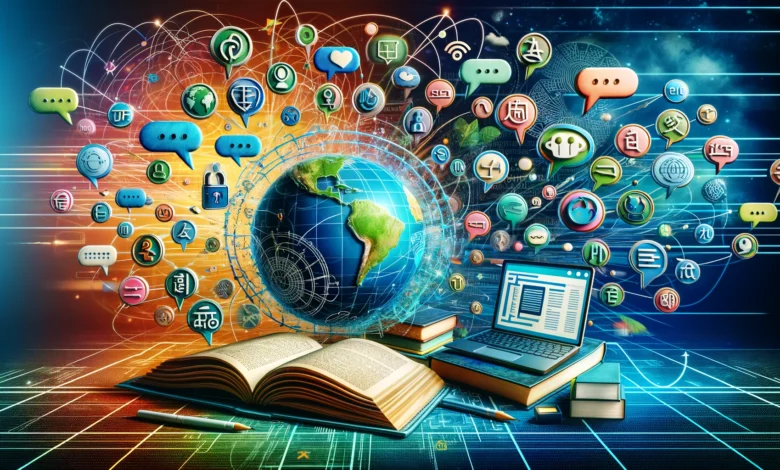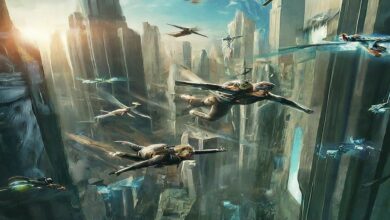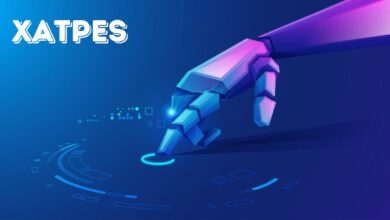The Role and Importance of “Vertėjjas” in Global Communication

In an increasingly interconnected world, communicating across linguistic boundaries is more crucial than ever. This is where the concept of “vertėjjas” comes into play, a term that signifies a translator in Lithuanian, embodying the bridge between languages and cultures. The role of translators—whether as individuals or through technology—cannot be overstated, as they enable the flow of information, ideas, and cultures among diverse linguistic groups.
The Evolution of Translation
Historically, translators have been pivotal in disseminating knowledge, from ancient texts to contemporary literature. The evolution of translation has mirrored that of human society, transitioning from oral traditions to the written word and digital formats. Each era has seen innovations that have expanded the reach and accuracy of translation, from the earliest interpreters to the sophisticated algorithms powering today’s machine translation engines.
Human vs. Machine Translation
The human and machine translation debate centers on balancing accuracy, context, and nuance. Human translators bring an understanding of cultural contexts, idioms, and the subtle nuances of language that machines often miss. However, advancements in artificial intelligence and natural language processing have significantly improved machine translation capabilities, making it a viable option for real-time communication and large volumes of text.
Human Translators:
- Cultural Sensitivity: They are adept at navigating cultural nuances and adapting content to fit the target audience’s cultural context.
- Creative Texts: Human translators excel in literary, legal, and other fields where precision and creativity are paramount.
Machine Translation:
- Speed and Efficiency: Tools like Google Translate and DeepL can instantly process vast amounts of text.
- Accessibility: They make translation services more accessible to the general public, breaking down language barriers in everyday scenarios.
The Impact of Translation in Various Fields
- Education: Translation opens access to knowledge and educational resources, allowing students worldwide to study materials in their native languages.
- Business: Global commerce relies heavily on translation to navigate international markets, enabling companies to communicate with customers and partners in their preferred language.
- Healthcare: In medical settings, accurate translation can be a matter of life and death, ensuring patients and healthcare providers understand each other regardless of their native language.
- Technology: As technology becomes more integrated into our lives, translation is crucial in making software, websites, and tech products usable and accessible to a global audience.
Challenges and Opportunities
Despite its advancements, translation faces challenges such as maintaining the quality of machine-translated content and the ethical considerations of translating sensitive or controversial material. Moreover, the demand for translators in less common languages presents both a challenge and an opportunity for linguistic diversity and preservation.
Conclusion
“Vertėjjas” plays a fundamental role in our global society, enabling connections, understanding, and cooperation across language divides. As technology advances, the potential for translation to foster even more excellent worldwide communication and understanding is immense. However, the human element of translation remains irreplaceable, highlighting the value of linguistic skills and cultural knowledge in our increasingly digital world. The future of translation is bright, promising a more interconnected and comprehensible world for all.
The Role of Translators in Global Communication
Translators, or “vertėjjas,” are:
- The backbone of global communication.
- Enabling the seamless exchange of ideas.
- Cultures.
- Information across linguistic barriers.
In a world where globalization is ever-increasing, the demand for skilled translators has surged, highlighting their indispensable role in international relations, business, and cultural exchanges. These professionals convert text from one language to another and bridge cultural divides, ensuring that the original message’s nuance, tone, and context are preserved. Their expertise facilitates diplomacy, global commerce, education, and access to information, making the world more connected and understandable.
The Evolution of Translation Technology
The field of translation has witnessed significant advancements with the development of technology. From the early days of dictionaries and phrasebooks to today’s sophisticated software and artificial intelligence, translation tools have evolved dramatically. Modern translation software powered by AI and machine learning can provide instant text and speech translations across multiple languages with impressive accuracy. However, despite these technological strides, human translators remain vital. Their deep understanding of cultural nuances, idiomatic expressions, and context-specific meanings ensures that translations are accurate, culturally relevant, and sensitive. This blend of human expertise and technological innovation continues to push the boundaries of how we communicate and understand each other in a multilingual world.
FAQs on Translators and Translation
Q1: What is a translator?
A1: A translator, or “vertėjjas,” is a professional translating written text from one language to another. They are crucial in facilitating communication across different languages, ensuring that the original message’s meaning, tone, and cultural context are accurately conveyed.
Q2: Why are human translators important when we have machine translation?
A2: While machine translation has advanced significantly, human translators are essential for their ability to understand and interpret nuances, cultural contexts, idiomatic expressions, and specialized terminology. They ensure translations are not only accurate but also culturally and contextually appropriate.
Q3: What fields require professional translators?
A3: Professional translators are needed in various fields, including but not limited to legal, medical, technical, literary, and business sectors. Each area requires translators with specific knowledge and expertise to convey specialized terminology and concepts accurately.
Q4: How has technology impacted the field of translation?
A4: Technology, especially AI and machine learning, has transformed translation by providing tools for instant text and speech translations across multiple languages. However, technology complements rather than replaces human translators, enhancing their efficiency and accuracy.
Q5: Can anyone become a translator?
A5: Becoming a translator typically requires fluency in at least two languages, specialized training, and knowledge in a particular field (such as legal, medical, or technical). Professional certification or accreditation may also be necessary, depending on the working context.
Q6: How do translators ensure they stay faithful to the original text?
A6: Translators use their linguistic skills, cultural knowledge, and subject matter expertise to ensure fidelity to the original text. They consider context, tone, and nuances to produce translations that accurately reflect the source material.
Q7: What are the challenges faced by translators?
A7: Translators often face challenges such as dealing with untranslatable elements, cultural nuances, slang, idioms, and keeping up with the rapid evolution of languages. They must also navigate their work’s technical aspects, including using translation software and maintaining consistency across large projects.
Q8: How do I choose a good translator for my needs?
A8: When choosing a translator, consider their language proficiency, experience, area of specialization, and professional credentials. Reviewing their past work or references is also helpful to ensure they can meet your specific translation needs.
Also Read: Explaining the Xalitoliw: From Mystery to Mastery




